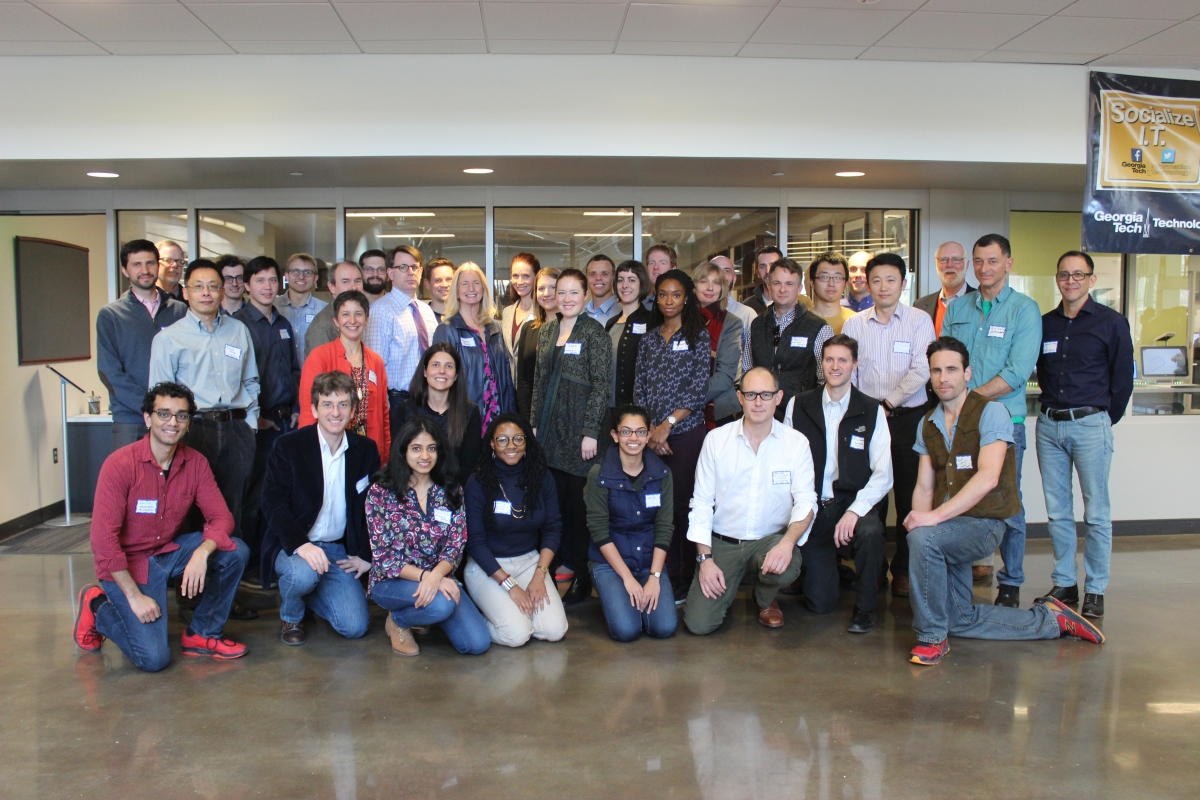SLS Climate Change Fellows Program Faculty Co-Directors:
Research Working Group
- Marilyn Brown, Professor, School of Public Policy, Climate & Energy Policy Lab
- Michael Chang, Deputy Director, Brook Byers Institute for Sustainable Systems
- Richard Simmons, Director, Energy Policy & Innovation Center, Strategic Energy Institute
Education Working Group
- Kim Cobb, Professor, Earth & Atmospheric Sciences; Director, Global Change Program
- Jennifer Hirsch, Director, Serve-Learn-Sustain; Adjunct Assoc. Professor, City & Regional Planning
- Matthew Realff, Professor, Chemical & Biomolecular Engineering; Assoc. Director, Strategic Energy Institute
 The Climate Change Fellows Program is offered jointly by SLS, the Climate & Energy Policy Lab, the new Global Change Program, the Strategic Energy Institute, the Ray C. Anderson Center for Sustainable Business, and the Brook Byers Institute for Sustainable Systems. The Climate Change Fellows Program will advance the work of the Global Change Task Force of 15 faculty, convened by President Emeritus Wayne Clough during AY 2016-2017, which identified avenues for education and research activities in the climate change arena, motivating the creation of the new Global Change Program by Provost Bras. The Fellows Program will leverage these activities by engaging faculty dedicated to advancing Georgia Tech's capacity in both climate change education and research. Fellows have self-selected into two working groups focused on the education and research missions.
The Climate Change Fellows Program is offered jointly by SLS, the Climate & Energy Policy Lab, the new Global Change Program, the Strategic Energy Institute, the Ray C. Anderson Center for Sustainable Business, and the Brook Byers Institute for Sustainable Systems. The Climate Change Fellows Program will advance the work of the Global Change Task Force of 15 faculty, convened by President Emeritus Wayne Clough during AY 2016-2017, which identified avenues for education and research activities in the climate change arena, motivating the creation of the new Global Change Program by Provost Bras. The Fellows Program will leverage these activities by engaging faculty dedicated to advancing Georgia Tech's capacity in both climate change education and research. Fellows have self-selected into two working groups focused on the education and research missions.
The Education Working Group is focused on developing recommendations for modules, classes, and academic support structures - including a combined Energy and Climate Minor - to teach students about the social, scientific, and technical aspects of climate change and engage in using their disciplinary training to develop solutions. The Research Working Group is focused on identifying shared interests among the Fellows in the area of climate change and working teams to explore ideas that: 1)are solutions-oriented, 2) have high potential for regional impact and connection to real-world projects and partners, 3) bring together diverse faculty, and 4) have high visibility and funding potential.
